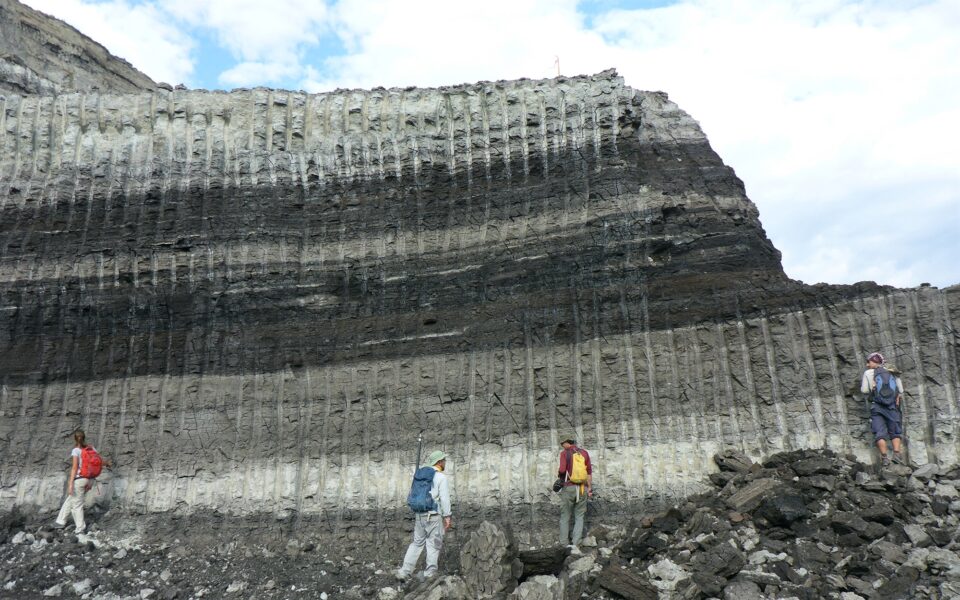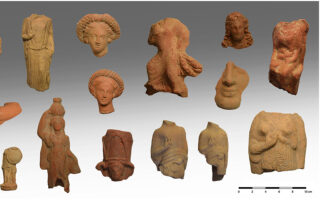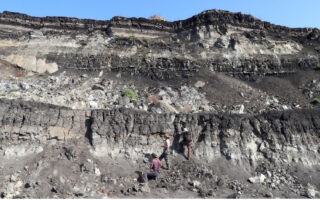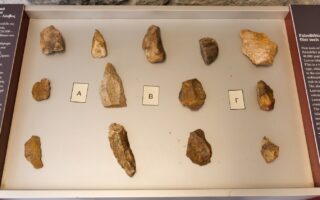Discovery puts Greece on the map of human evolution

The Megalopolis Basin in the Peloponnese was among the southernmost ecological refuges in Europe during the glacial periods of the Middle Pleistocene, according to the results of a five-year program of surface and geoarchaeological research recently completed by the Culture Ministry and the American School of Classical Studies in Athens (ASCSA).
One site in particular, called Kyparissia 4, located in a lignite mine, has been designated as the oldest dated archaeological site in Greece, stretching back some 700,000 years.
All in all five new sites in the area place Greece on the map of human evolution.
“With this discovery we put Greece in the game of human evolution and the colonization of Europe by hominids, something Greece was not associated with until recently,” said Panagiotis Karkanas, geoarchaeologist at the ASCSA who co-directed the project together with Eleni Panagopoulou of the ministry’s Paleoanthropology-Speleology Department and Katerina Harvati of the University of Tubingen.
The results also strongly suggest that the Aegean Sea served as a bridge for the passage of people to the European continent.





